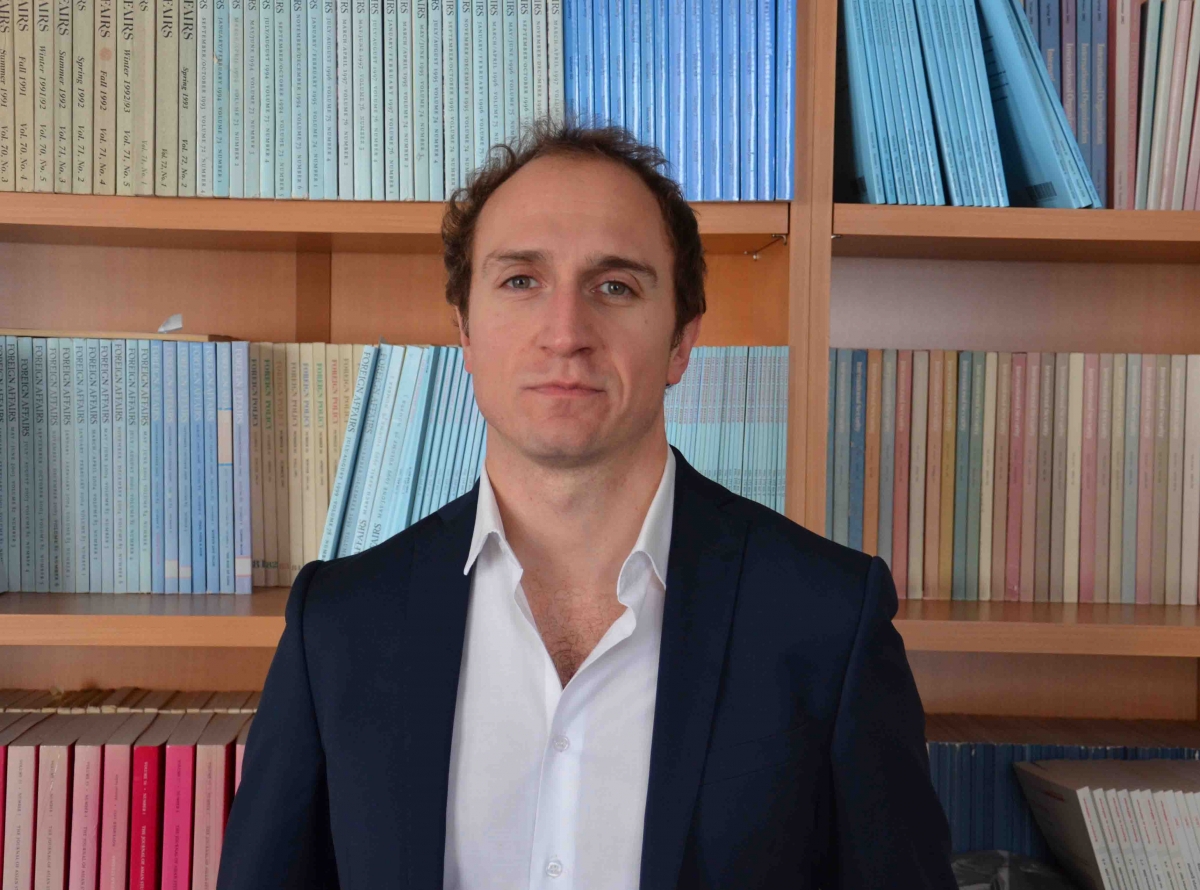Interview with Hugo Meijer, CNRS Researcher

Hugo Meijer joined CERI Sciences Po in January 2019 as CNRS Research Fellow. His research interests lie at the intersection of Foreign Policy analysis and security studies. Hugo has agreed to answer our questions and tell us more about his research background and current interests.
Can you tell us about your academic background, past research themes and more personal interests?
I am French and Dutch, and I was born and grew up in Italy. After a B.A. at the LUISS Guido Carli in Rome, I completed a M.A. in International Relations at the Paul H. Nitze School of Advanced International Studies (SAIS) at Johns Hopkins University (one year in Bologna and one year in Washington D.C.). I then completed a Ph.D. in International Relations at Sciences Po, Paris. My Ph.D. thesis focused on U.S. foreign and defense policy toward China and, specifically, on the decision-making of U.S. arms transfers policy vis-à-vis the People’s Republic of China from the Korean War to the present. The larger question I investigated was how states manage and balance their national security and economic interests when such interests collide. I conducted my field work (interviews and archival research) in Washington D.C., where I was a visiting scholar at the Sigur Center for Asian Studies at George Washington University.
I spent one-year postdoc at the Institute for Strategic Research (IRSEM, Paris) during which my research broadened the empirical lens of my doctoral enquiry in order to examine the political, strategic and economic controversies and frictions, across the two sides of the Atlantic, over the transfer of sensitive technologies to China by E.U. member states. After this post-doc I became Lecturer (Assistant Professor) at King’s College London where I worked for almost three years. During my stay in the United Kingdom, I was also Senior Common Room Member at St Antony’s College, Oxford University.
I then came back to continental Europe first as Researcher at IRSEM, focusing on the U.S., and transatlantic relations, and then as Marie Skłodowska-Curie Fellow at the European University Institute (EUI) in Florence. I joined Sciences Po-CERI in January 2019. Outside my academic work, I greatly enjoy learning languages (I am currently studying Arabic) and have a keen interest in music, art history and cosmology.
What are your current research interests? Are you moving toward new themes?
My research interests lie at the intersection of foreign policy analysis and security studies. It is my conviction that in order to understand the decision-making and content of foreign policy it is necessary to examine how the strategic environment enables or constraints foreign policy choices. At the same time, an exclusive focus on defense matters neglects the overarching role of foreign policy objectives as well as the decision-making processes that underpin foreign and defense policy choices. Foreign policy and defense policy are therefore two sides of the same coin. Also, even though I am trained as a political scientist, I always seek to put emphasis on historical analysis and on primary sources.
My current research focuses on the reconfiguration of American hegemony in the face of a rising China and on its implications for US posture and alliance systems in Europe and East Asia. Through this cross-regional comparison of US posture and alliance systems, the aim is to assess the patterns of continuity and discontinuity in the foreign policy priorities and the defense cooperation patterns of the United States, so as to shed light on the changing character of US hegemony in the 21st century. Relatedly, I am also working on a book project that compares the evolution of US, French and British foreign and defense policies in East Asia since the end of the Cold War. Finally, I continue my enquiry into the study of foreign policy making processes by exploring new ways to conceptualize the articulation of domestic and international drivers of foreign policy.
Are you part of collective projects within CERI and beyond? Can you tell us about them?
Together with Christian Lequesne (CERI) and Yohanan Benhaim (Panthéon-Sorbonne University), I co-lead the collective transversal project on foreign policy analysis at CERI (‘Sociologie de la politique étrangère et des pratiques diplomatiques’). This project builds upon various research groups and seminar series that I have co-organized at CERI since 2013. Within the framework of the new Cambridge-Sciences Po agreement, I also co-lead a joint project on research methods in International Relations and International History. In the coming years, through similar initiatives, my hope is to contribute to further consolidating the study of foreign policy and security studies at Sciences Po. I am also the Founding Director of the European Initiative on Security Studies (EISS), a network of scholars from over eighty universities (including Sciences Po-CERI) that share the goal of consolidating security studies in Europe. The next conference of the EISS will take place at Sciences Po on June 27-28. Through these multiple initiatives, I hope to contribute to the collective ambition of making Sciences Po-CERI a European hub in the fields of foreign policy analysis and security studies.
Interview by Miriam Périer, CERI










